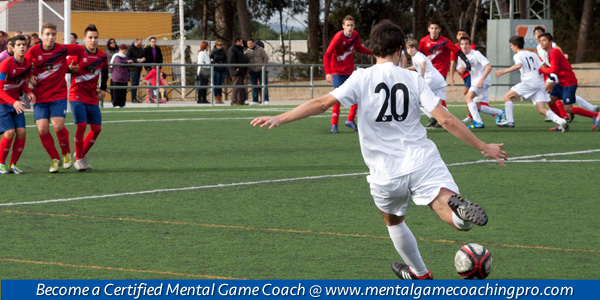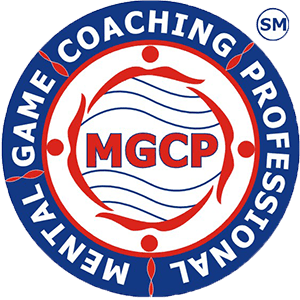
Help Athletes Understand Mental Training
Dr. Cohn here from the MGCP certification course where I teach mental coaches how to overcome barrier to their success…
What’s the top question I receive from mental coaches? Most everyone wants to know:
“How can we help athletes understand the importance of mental training?”
The truth is, many athletes, coaches, and sports parents don’t understand why mental training is so critical to performance and enjoying sports.
Based on our sports psychology survey with coaches, 53% of them said their athletes resist mental training.
If half of the athletes you come in contact with don’t understand mental training, then how can you help them embrace it?
First, one reason athletes avoid mental training is because a few myths still exist about sports psychology.
Here are just a few of the top myths that hold athletes back:
- “I’m already mentally tough.”
- “I’m playing well now. I don’t want to hurt my momentum.”
- “My teammates or coach will think I am weak if I need mental training.”
- “I don’t want to focus on the negative – that’s all a mental coach does.”
Dispelling myths about sports psychology is a good start to help athletes understand the benefits of mental training.
But this is just for starters…
You also want help athletes understand what mental training is and how it can help…
- Help them understand the benefits of mental training
- Simplify the mental game and avoid psychobabble
- Relate mental training to other forms of training they are doing already
- Discuss what they might be missing if they don’t do mental training
In addition, we like to mention role models and examples of popular athletes who have used mental training such as professional and Olympic athletes.
You might discuss how these athletes openly talk about the importance of having a strong mental game.
For example, Mia Hamm said this about mental toughness, “The most important attribute a soccer player must have is mental toughness. Before you can win, you must have the will to prepare to win.”
The athletes or teams you work with are more likely to embrace mental training when they understand it and its benefits.
However, the best way for athletes to buy into mental training is when they actually experience its power firsthand.
You can use introductory seminars, sample session, and simple tests to help your athletes experience the power of mental training.
You can use testimonials from athletes and coaches who have had success with your mental training program. Athletes will be more receptive to trying mental training for themselves if others are benefiting from using it.
Here’s one example of a way to introduce athletes to the benefits of mental training:
Sports Psychology – Success Stories
Related Mental Coaching Articles:
- Helping Athletes Apply Mental Skills
- Become a Mental Coach or Sports Psychologist
- My System for Doing Mental Coaching with Athletes
Apply To Be In The MGCP Program!
Upon acceptance into the Mental Game Coaching Professional (MGCP) program, you’ll be given assess to the MGCP documents and to the peaksportsnetwork.com membership web site, start dates and times of each video conference, and how to access the video conference.
The MGCP video conference certification program is taught by video conference over a period of 10 weeks, meeting for two hours each week, but the course can take up to 12 weeks to complete (due to holidays and such).
By the end of the certification program (provided you have completed all requirements for graduation), you will receive a certification from Peak Performance Sports, LLC as a certified Mental Game Coaching Professional!
Have questions about the MGCP program? Read our FAQ. Find out what is included in the MGCP program. Call 888-742-7225 or email us at Peak Performance Sports
